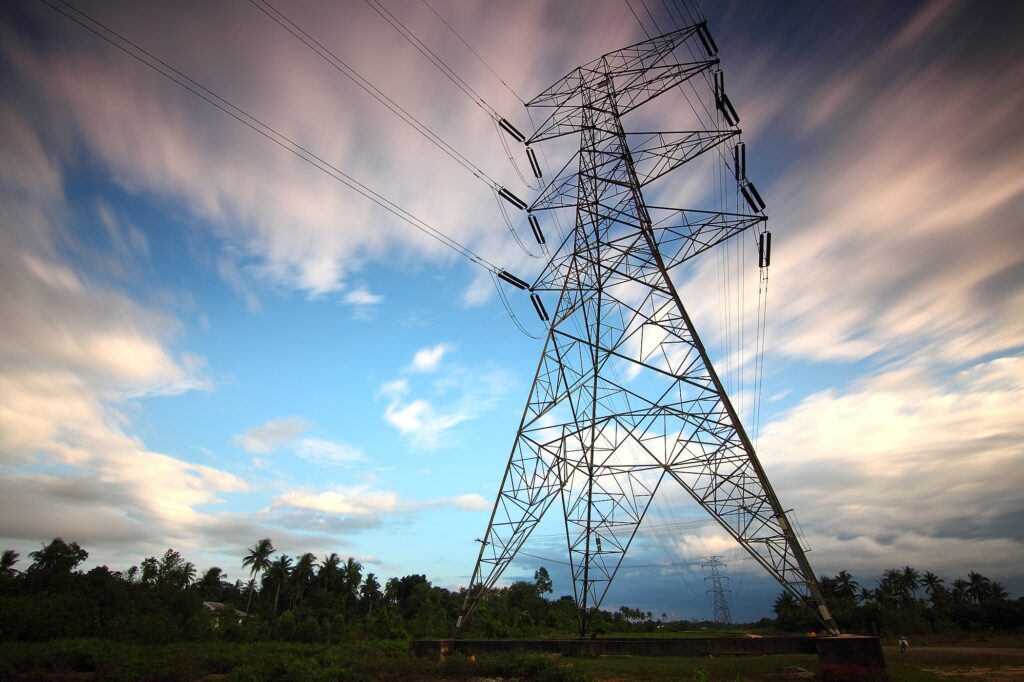Ofgem has increased the energy price cap for the second time this year, with further hikes expected in January.
The average cost of heating and lighting a home has soared past £3,500 a year following an 80% hike in the energy price cap.
Energy regulator Ofgem has increased the price cap for gas and electricity customers on their providers’ default and variable tariffs.
The rise means the typical annual household energy bill will now be £3,549, up from £1,971 in April and £1,277 in the first three months of the year.
The move will impact an estimated 24 million households from 1 October 2022.
Consumers were also warned to brace themselves for further energy price hikes in January 2023. Ofgem recently increased the frequency with which it reviews the energy price cap to every three months, instead of every six.
Jonathan Brearley, CEO of Ofgem, said: “We know the massive impact this price cap increase will have on households across Britain and the difficult decisions consumers will now have to make.
“The government support package is delivering help right now, but it’s clear the new Prime Minister will need to act further to tackle the impact of the price rises that are coming in October and next year. The response will need to match the scale of the crisis we have before us.”
Chancellor Nadhim Zahawi said the government was looking at what support it could offer to help the most vulnerable.
Why is this happening?
A number of factors have combined to force energy prices higher.
The conflict in Ukraine led to the UK, EU and US putting restrictions on oil and gas imports from Russia, which previously accounted for 43% of the EU’s natural gas imports.
Meanwhile, demand for energy increased as a result of economic activity resuming after Covid-19 lockdowns. It also rose after a cold winter in Europe and a hot summer in Asia, where electricity is used to power air conditioning units.
The limits on the supply of energy, combined with high levels of demand, have pushed prices higher.
As a result, UK energy companies are having to pay a lot more for gas and electricity, and these higher costs are being passed on to households.
What can you do?
If you’re worried about being able to afford your energy bills, or you’re already struggling, make sure you claim any support that’s available to you.
A number of the major energy companies offer grants to help people struggling with their fuel bills. British Gas offers up to £1,500 for individuals and families who are in energy debt, regardless of who their supplier is.
In March this year, the government announced that every household would have £400 cut from their energy bills. Low-income households, pensioners and people with disabilities will get up to £800 off.
Pensioners will receive an extra £300 Cost of Living Payment, while people with disabilities will receive £150.
Support is also available through the Household Support Fund and the Warm Home Discount Scheme.
For more advice see our article on the cost on living which focuses on energy and the available government schemes that can help.
If you’re already struggling, contact your supplier as soon as possible.
Ofgem has rules that they must help you if you’re falling behind. They should work with you to create an affordable payment plan.
You can also take steps to reduce your gas and electricity consumption. Try turning your thermostat down, taking shorter showers, draft-proofing your windows and doors, not using a tumble drier and turning off appliances left on standby mode.
How will energy bills impact the housing market?
The steep increase in energy bills, combined with other cost of living hikes and rising mortgage rates, is expected to lead to slower house price growth.
Buyer demand was already starting to ease, although it still remains above the five-year average.
This slowdown is expected to continue for the rest of the year in the face of rising living costs and economic uncertainty.
Although high energy bills will hit consumers’ budgets, rising mortgage rates are expected to have a bigger impact on their decisions to move home.
Average mortgage rates for new borrowers taking out a two-year fixed rate deal have already doubled from less than 2% at the start of the year to 4% now.
The higher rates move above 4%, the greater the impact on the housing market is likely to be, although we don’t anticipate widespread house price falls.
How do rising energy bills impact the housing market?
Will higher gas and electricity bills make it harder to get a mortgage and what impact the rising cost of living is having on mortgage availability?
Energy bills have more than doubled this year as the conflict in Ukraine continues to drive gas and electricity prices higher.
The energy price cap has increased from £1,277 a year at the start of 2022 to £3,549 now. And further price increases are predicted for January 2023.
The rising cost of heating and lighting a home is having a knock-on effect on the mortgage market.
Here’s what you need to know and how you can make yourself more attractive to mortgage lenders.
Why are rising energy bills impacting the mortgage market?
Unfortunately, lenders can’t ignore the impact higher energy bills will have on people’s finances.
Before offering you a mortgage, they need to make sure you can afford the monthly repayments.
Lenders have historically looked at repayment affordability, but they may now also consider the hike in energy prices and the cost of living before approving a mortgage, although restrictions have been relaxed.
Mark Harris, chief executive of mortgage broker SPF Private Clients, adds that most lenders use data from the Office for National Statistics as part of their affordability assessments. This data reflects the recent rise in energy costs.
“As lenders have plugged this new data into their calculations, borrowing potential has been negatively impacted and lower lending limits are being offered,” he says.
Will it be harder to get a mortgage?
Some people are likely to find it harder to get a mortgage due to the rising cost of living.
If a lender feels your budget is too tight to cope with further hikes to energy costs, as well as other price rises, they might offer you a smaller amount to borrow.
It’s not all bad news, mortgage approvals have been very strict over the last few years and are now being relaxed.
Most people who have bought a home or re-mortgaged recently will have needed to show that they would have been able to afford repayments at a much higher mortgage rate of 6% or 7%.
This requirement has since been removed, but it means if you’re re-mortgaging you should have enough flexibility in your budget to meet the cost of higher energy prices.
Who will be impacted most?
First-time buyers and borrowers with low incomes are most likely to be impacted by lenders tightening their affordability criteria.
The rising energy costs will affect all households, however those with less disposable income may find it more of a struggle.
By contrast, people with high incomes looking to borrow a high multiple of their salary are less likely to be affected, according to Jonathan Harris, of Forensic Property Finance.
With mortgage restrictions relaxed and the ability for lenders to amend their criteria for approval of mortgages, it can still be possible for lenders to provide high value mortgages for those who can afford it.
First time buyers are most likely to be affected the most as they try to raise as much funds as possible in a deposit for a higher loan amount on their mortgage.
Will banks be more reluctant to lend?
The good news is that lenders are still very much open for business, even if they are tightening their affordability criteria.
As previously mentioned, mortgage rules have been relaxed, lenders are to provide more support to buyers and they have the ability to make changes to the approval systems as inflation and interest rates continue to rise.
So while banks may be more cautious about the amount they will advance to an individual, it’s not expected to be as widespread as it was at the start of the Covid-19 pandemic.
What will happen to mortgage rates?
Mortgage rates are already rising across the board as a result of increases to the Bank of England base rate.
The official cost of borrowing has jumped by 1.65% since December last year, and most of this increase has been passed on to new mortgage customers.
On top of this, Donnell also expects mortgages for people with small deposits to become more expensive. It’ll reflect the greater risk these borrowers pose in the face of the rising cost of living.
“When the economic outlook is uncertain and there is greater risk, lenders tend to reduce the availability of loans at higher loan-to-value ratios. They also sometimes increase the cost of mortgages at these levels to cover the risk, which can reduce demand,” he says.
What can you do to help qualify for a mortgage?
Mark Harris points out that while you can’t directly influence inflation, you can make yourself more attractive to lenders.
Cut back on unnecessary spending and reduce or pay off financial commitments such as loans and store cards.
Cancelling monthly subscriptions you rarely use, video streaming services, gym memberships, paid app or game memberships, repeat food boxes or even Amazon subscribe and save that you may have accidental selected. Especially if you are not making full use of them.
Making sure you include all of your income, backed by evidence, in your mortgage application. While it may seem insignificant to you, it could push you into a different income banding and therefore a more beneficial risk bracket.
Before applying for a mortgage; clearing existing debt, checking your credit score, applying for an AIP, speaking with a broker, researching rates, comparing mortgages and getting all your paperwork in order can really help you understand your likelihood of being accepted and what interest rates you’ll be paying before going ahead.
If you’re facing a drop in the amount you can borrow, asking a family member to help bridge the gap could also be a possibility.
This could be done by adding a lump sum to increase the equity stake in the property. Or could even be a party to the mortgage, so that their own income would be included in the assessment.
Will higher energy bills impact the housing market?
Rising energy costs may encourage some people to move to find a more suitable home that is lower cost to run.
Buyers are also likely to pay closer attention to the running costs of a property than they have done in the past.
A recent survey found better energy ratings and lower running costs of new homes is an increasingly attractive proposition for new buyers. This can be checked by viewing a properties EPC rating, which is available on all listings.
But rising energy costs are not expected to trigger anything as dramatic as a house price crash.
This is in part because borrowers who took out mortgages in the past few years will have faced strict affordability tests to ensure they could still afford their repayments even if costs rose.
Will there be a housing crash?
At the same time, the majority of homeowners with a mortgage are on a fixed rate deal, meaning they will be insulated from interest rises until they need to remortgage.
Instead, house price growth is expected to slow gradually during the rest of the year as buyer demand eases.


